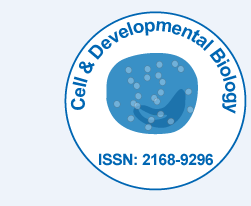
Biologie cellulaire et du développement
Libre accès
ISSN: 2168-9296

ISSN: 2168-9296
Catherine J Wooten, Ayodele Fakayode, Audrey F Adcock, Kendra M Davis, Raven S King, Denika D Rhodes and Dayami Lopez
The purpose of this study was to determine whether the Low-Density Lipoprotein (LDL) receptor could be directly regulated by high glucose (HG) in human hepatocyte-like C3A cells. C3A cells were cultured in a medium supplemented with BD™ MITO+ serum extender (MITO+ medium), a serum-free, cholesterol deficient medium. We found that HG reduced receptor mRNA levels without significantly affecting overall or plasma membrane receptor protein expression. Interestingly, these effects were also seen in the presence of low glucose + high mannitol (LG +HM). LDL receptor protein synthesis, protein degradation, and receptor function (LDL internalization) were increased by HG and LG+HM. However, no changes in protein expression of proprotein convertase subtilisin kexin type 9 (PCSK9) or the inducible degrader of LDL receptors (IDOL), the known degraders of the LDL receptor, were seen under the same conditions. These results implied that the effects of HG and LG+HM on the expression/ function of the LDL receptor were mostly due to an osmotic stress induced by the high levels of these monosaccharides. Further studies are required to determine how other factors found in diabetic patients, such as high cholesterol and/or high fatty acid levels, may influence the osmotic- dependent regulation of the LDL receptor expression/function due to hyperglycemia.